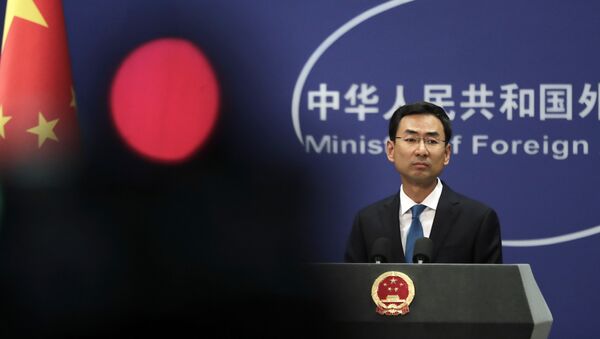The Chinese foreign ministry has rebuffed criticism from the US Treasury’s top economic diplomat David Malpass over the existing “oil-for-loan” mechanism between China and Venezuela. The Latin American country is experiencing economic difficulties and is trying to find new ways to manage its debts. According to the Chinese ministry’s statement, made on Monday, February 5, 2018, the ordinary people of Venezuela benefit from the deal, which is widely welcomed in Venezuela.
Chinese Foreign Ministry Spokesman Geng Shuang claims that financial cooperation between the two countries is based on a win-win principle, and the loans are handled in accordance with international standards. “What the United States said is baseless and extremely irresponsible,” he added.
READ MORE: Extinguishing the Chinese Sun: Did the US Just Declare Economic War on Asia?
In his speech on Friday, Malpass claimed that China is actually hurting countries by agreeing to such opaque deals. His words were preceded by U.S. Secretary of State Rex Tillerson, who suggested that Venezuela’s military could “handle” the transition of power from the incumbent President Maduro.
The US began to impose sanctions against current and former Venezuelan officials at the end of August 2017, on the basis of alleged human rights abuses and corruption in Maduro’s administration. The country has been facing a severe economic crisis, which has led to malnutrition, shortages of healthcare products and mass emigration. As a result, the situation has sparked a political crisis, which only deepened when in March 2017 the power of the legislative body was restricted by the Supreme Court.
READ MORE: Tillerson: US Considering Venezuela Oil Embargo
China and Venezuela have close ties in business, especially in the sphere of energy. China has loaned Venezuela more than $50 billion via their oil-for-loan program since 2007, which has helped the latter become less reliant on the US energy market. However, the financial flow has declined since the fall in oil prices in 2014.


